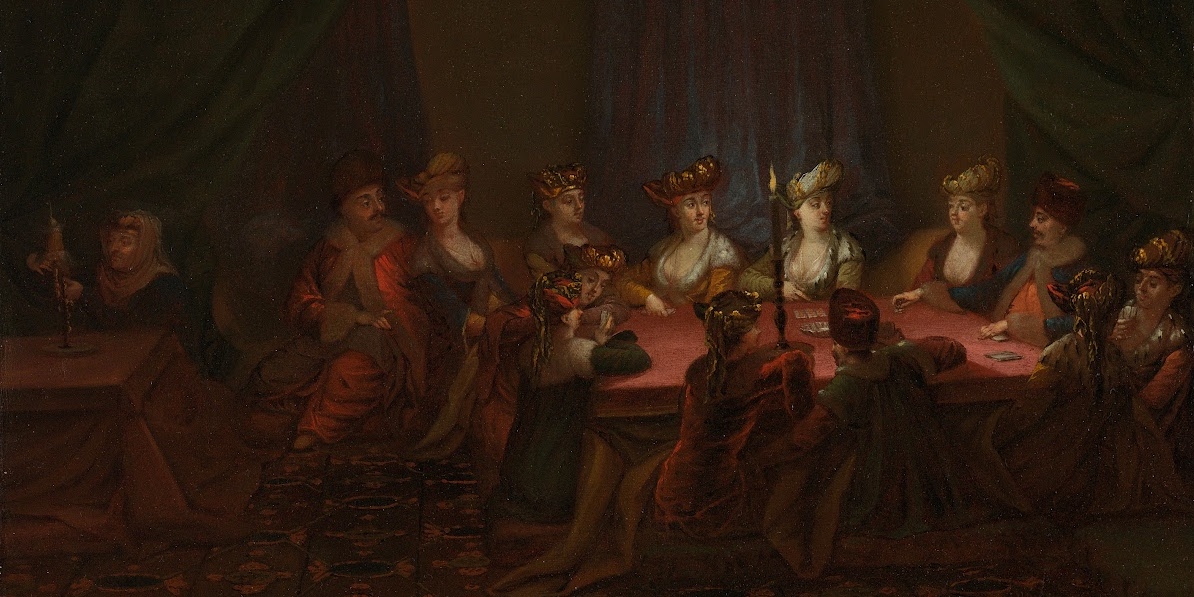Gendered Politics of Conversion in Early Modern Aleppo
hosted by Chris Gratien
The changing of one's religion may be viewed today as a matter of personal spirituality or identity, but as the historiography of the Ottoman Empire and elsewhere increasingly shows, conversion was often a public act with political, socioeconomic, and gendered components. In this episode, Elyse Semerdjian returns to the podcast to discuss her research on conversion in early modern Aleppo and how women sometimes utilized the act of conversion (or non-conversion) and the legal structures of the Ottoman Empire to gain the upper hand in familial and economic matters.
 |
Elyse Semerdjian is the Director of Global Studies and Associate Professor of Middle East/Islamic World History at Whitman College. A specialist in early modern Ottoman history and Syria, she authored “Off the Straight Path”: Illicit Sex, Law, and Community in Ottoman Aleppo (Syracuse University Press, 2008) as well as several articles on gender, non-Muslims, and law in the Ottoman Empire. |
 |
Chris Gratien holds a Ph.D. from Georgetown University's Department of History. His research focuses on the social and environmental history of the Ottoman Empire and the modern Middle East. He is currently preparing a monograph about the environmental history of the Cilicia region from the 1850s until the 1950s. |
CREDITS
Episode No. 266
Release Date: 4 September 2016
Recording Location: Bebek, Istanbul
Editing and production by Chris Gratien
Sound excerpts: Baglamamin Dugumu - Necmiye Ararat and Muzaffer; Rizeli Sadik - Erkek Kadin Oyun Havasi; Istanbul'dan Ayva Gelir Nar Gelir - Azize Tozem and Sari Recep; Harmandali - Recep Efendi, Cemal Efendi
Special thanks to Kara Güneş for allowing us to use the composition "Istanbul" in the intro music
Bibliography courtesy of Elyse Semerdjian
SELECT BIBLIOGRAPHY
Aslanian, Sebouh David. From the Indian Ocean to the Mediterranean: The Global Trade Networks of Armenian Merchants from New Julfa. 2011.
Baer, Marc David. 2008. Honored by the Glory of Islam: Conversion and Conquest in Ottoman Europe. Oxford: Oxford University Press.
--------------------. 2004. “Islamic Conversion Narratives of Women: Social Change and Gendered Religious Hierarchy in Early Modern Ottoman Istanbul,” Gender & History 16:2. 425-58.
Berberian, Houri. ‘Unequivocal Sole Ruler’: The Lives of New Julfan Armenian Women and Early Modern Laws,” Journal of the Society of Armenian Studies 23. 83-112.
Heyberger, Bernard. 1996. “Se Convertir á l’islam chez Chrétiens de Syrie XVIIe-XVIIIe Siecles,” Dimensioni e promlemi della ricerca storica 2, 133-152.
Krstić, Tijana. 2011. Contested Conversions to Islam: Narratives of Religious Change in the Early Modern Ottoman Empire. Stanford: Stanford University Press.
Levtzion, Nehemia. 1990. “Conversion to Islam in Syria and Palestine and the Survival of Christian Communities,” in Conversion and Continuity: Indigenous Christian Communities in Islamic Lands, Eighth to Eighteenth Centuries, Michael Gervers and Ramzi Jibran Bikhazi, eds., Papers in Medieval Studies, Toronto: Pontifical Institute of Medieval Studies. 289-311.
Semerdjian, Elyse. 2016. "Armenian Women, Legal Bargaining, and Gendered Politics of Conversion in Seventeenth- and Eighteenth-Century Aleppo". Journal of Middle East Women's Studies. 12, no. 1: 2-30.











Comments
Post a Comment
Due to an overwhelming amount of spam, we no longer read comments submitted to the blog.